Nattokinase Pulver 100g Packung
Vorrätig (kann nachbestellt werden)
69,90 € 49,90 € / 100 g
inkl. 7 % MwSt. zzgl. Versandkosten
- Nattokinase Pulver 100g mit 2.000.000 FU´s
- ACHTUNG !!! OHNE Magnesiumsterate, OHNE K1 und K2 und sonstige chemische Zusätze
- NEU: mit 100mg Dosierlöffel
- Nattokinase ist ein fibrinolytisches Enzym abgeleitet von “Natto”, ein traditionelles japanisches Essen.
- DEUTSCHES QUALITÄTSPRODUKT: Wir produzieren nur in Deutschland
- In Apotheken zugelassen PZN 19135702
- Für Veganer geeignet!
Lieferzeit: 24 Stunden
Sparpeis: Ursprünglicher Preis war: 69,90 €Sparpeis: 49,90 €Aktueller Preis ist: 49,90 €.
69,90 € 49,90 € / 100 g
inkl. 7 % MwSt. zzgl. Versandkosten
Lieferzeit: 24 Stunden
Beschreibung
Nattokinase Pulver kaufen – Die perfekte Wahl für höchste Qualität und Wirksamkeit
Was ist Nattokinase?
Nattokinase ist ein Enzym, welches Proteine zerlegt und aus dem tratitionellen japanischen Gericht Natto gewonnen wird. Die Sojabohnen werden mit Hilfe von Bacillus subtilis (Bakterienkultur) fermentiert.Redfood Nattokinase Pulver
Wenn Sie Nattokinase in Pulverform bevorzugen, sind Sie bei Redfood24 an der richtigen Adresse. Wir bieten Ihnen das hochwertigste Nattokinase-Pulver auf dem Markt mit einer beeindruckenden Enzymaktivität von 2.000.000 FU (Fibrinolytische Einheiten) pro 100g. Um diese Qualität zu gewährleisten, verwenden wir Bacillus subtilis als nattokinase-produzierendes Bakterium, das Nattokinase durch Fermentation von gentechnikfreien Sojabohnen herstellt. So können wir garantieren, dass unser Nattokinase-Pulver frei von Sojarückständen ist und den höchsten Standards entspricht. Was macht unser Nattokinase-Pulver so besonders? Es zeichnet sich durch seine hervorragende Qualität und Reinheit aus und ist somit die perfekte Wahl für alle, die ein wirksames Nattokinase-Präparat suchen. Unsere Nattokinase Pulver Kapseln enthalten kein Vitamin K2 und können ideal mit OPC Plus ergänzt werden, um Ihre Gesundheit optimal zu unterstützen.Wir arbeiten mit einem der drei weltweit führenden Hersteller zusammen, um Ihnen folgende Garantien bieten zu können:
- 100% Nattokinase: Sie erhalten das reine Enzym, das für seine positive Wirkung auf die Herz-Kreislauf-Gesundheit bekannt ist.
- Hohe Aktivität: Unser Nattokinase-Pulver besitzt eine außergewöhnliche enzymatische Aktivität, um optimale Ergebnisse zu erzielen.
- GMO-freie Zutaten: Wir setzen auf eine natürliche Produktion und verwenden ausschließlich gentechnikfreie Sojabohnen.
- Hochwertige Nahrungsergänzung ohne Zusatzstoffe: Unser Nattokinase-Pulver enthält keine unnötigen Zusatzstoffe, um die Reinheit und Qualität des Produktes zu gewährleisten.
- Hergestellt nach dem Vorbild des traditionellen japanischen Gerichts Natto: Wir orientieren uns an der langen Tradition der Herstellung von Nattokinase, um Ihnen ein authentisches und wirksames Produkt anbieten zu können.
- Sojafreie Herstellung: Für Menschen, die empfindlich auf Soja reagieren, ist unser Nattokinase-Pulver eine gute Wahl, da es frei von Sojarückständen ist.
- Frei von Zusatzstoffen und Vitamin K2: Wir verzichten bewusst auf unerwünschte Zusatzstoffe und Vitamin K2, um Ihnen ein reines Nattokinase-Erlebnis zu ermöglichen.
- Unser Nattokinase-Rohstoff ist gemäß EU-Verordnung weiß-gelblich bzw. milchig Farbe: Unser Nattokinase-Pulver erfüllt alle gesetzlichen Anforderungen und ist von höchster Qualität.
- Der Rohstoff ist geruchlos: Wir achten darauf, dass unser Nattokinase-Pulver einen angenehmen Geruch hat, wie im Official Journal of the European Union auf Seite 117 dokumentiert.
Was ist Nattokinase?
Nattokinase ist ein Enzym, das aus fermentierten Sojabohnen (Natto) gewonnen wird. Natto ist in Japan ein beliebtes Gericht, das dort bereits seit circa 1000 Jahren auf dem Speiseplan steht. Das Enzym besitzt fibrinolytische Eigenschaften. Nattokinase beschreibt ein Protein, was aus 362 Aminosäuren besteht.[1] 1987 erscheinen die ersten Beschreibungen von dem Forscher Hiroyuki Sumi, der behauptet, dass es sich bei dem Enzym Nattokinase nicht um eine Kinase handelt, sondern um eine Serinprotease der Subtilisin-Gruppe.[2] Natto wird aus fermentierten Sojabohnen hergestellt und findet Platz in der traditionellen japanischen Ernährung. Nattokinase wird nicht in mg gemessen, sondern in einem nicht assoziierten Maß an Einheiten.
Genauer: Die Herstellung von Nattokinase erfolgt über die Extraktion aus Bakterienkulturen als auch rekombinant. Dies ermöglicht, dass das Nattokinase Enzym zur Verarbeitung für Lebensmittel verwendet werden kann.[3][4][5]
Was genau bedeutet Fermentation?
Für die Gewinnung von Nattokinase werden gekochte Sojabohnen einem Fermentationsprozess unterzogen, bei dem das Bakterium Bacillus subtilus natto hinzugegeben wird. Unter Bedampfung bei 42°C produzieren die Bakterien in 3 bis 5 Stunden das Enzym Nattokinase, welches die Sojabohnen verdauen soll.
Die Fermentation beschreibt eine Umwandlung, bei dem die organischen Stoffe (zum Beispiel Kohlenhydrate) in Alkohol, Enzyme oder Gase umgewandelt werden, um Lebensmittel haltbar zu machen. Der Fermentationsprozess beginnt mit dem Beimengen von Bakterien oder Pilzkulturen – diese sind so gesehen die Vorantreiber der Fermentation.
Unsere Verzehrempfehlung zu unseren Nattokinase Kapseln
Wir empfehlen Dir täglich 1 Kapsel mit reichlich Wasser einzunehmen.
Hinweise: Nattokinase ist nicht geeignet für Personen, die gerinnungshemmende Arzneistoffe, beispielsweise der Cumarin-Gruppe (Marcumar, Warfarin), einnehmen. Bei jeder Form von Blutungen ist Nattokinase kontraindiziert. Bei bevorstehenden Operationen informieren Sie bitte rechtzeitig Ihren Arzt über den Verzehr von Nattokinase.
Nahrungsergänzungsmittel sind kein Ersatz für eine ausgewogene und abwechslungsreiche Ernährung. Die angegebene empfohlene tägliche Verzehrmenge darf nicht überschritten werden. Außerhalb der Reichweite kleiner Kinder aufbewahren. Kühl, trocken und lichtgeschützt aufbewahren.
Quellen
[1] NCBI
[2] ClinicalTrials
[3] X. Liang et al.: Secretory Expression of Nattokinase from Bacillus subtilis YF38 in Escherichia coli. In: Molecular Biotechnology (Hrsg.): 37. Band 3, 2007, S. 187–194, doi:10.1007/s12033-007-0060-y, PMID 17952663.
[4] X. Liang et al.: Secretory Expression of Nattokinase from Bacillus subtilis YF38 in Escherichia coli. In: Molecular Biotechnology (Hrsg.): 37. Band 3, 2007, S. 187–194, doi:10.1007/s12033-007-0060-y, PMID 17952663.
[5] Y. H. Cho: Production of nattokinase by batch and fed-batch culture of Bacillus subtilis. In: New Biotechnology (Hrsg.): 27. Band 4, 2010, S. 341–346, doi:10.1016/j.nbt.2010.06.003, PMID 20541632.
[6] E. Y. Kwon: Production of nattokinase by high cell density fed-batch culture of Bacillus subtilis. In: Bioprocess and Biosystems Engineering (Hrsg.): 34. Band 7, 2011, S. 789–793, doi:10.1007/s00449-011-0527-x, PMID 21336955
[7] Wissenschaftliche Studie Mitsugu Fujita, Kyongsu Hong, Yae Ito, Rie Fujii, Kimio Kariya, Satoshi Nishimuro. Thrombolytic effect of nattokinase on a chemically induced thrombosis model in rat. Biological & Pharmaceutical Bulletin. Jan 1995; Issue: 10, Volume: 18, Pages: 1387-1391.
weiter Quellen
- Ja-Young J et al., Nattokinase improves blood flow by inhibiting platelet aggregation and thrombus formation, Dezember 2013, Lab Anim Res.
- Yunqi Weng et al., Nattokinase: An Oral Antithrombotic Agent for the Prevention of Cardiovascular Disease, Int J Mol Sci. 2017 Mar; 18(3): 523
- Examine.com, Summary of Nattokinase, Primary Information, Benefits, Effects, and Important Facts
- Kurosawa Y et al., A single-dose of oral nattokinase potentiates thrombolysis and anti-coagulation profiles, Sci Rep. 2015 Jun 25;5:11601
- Nagata C., Nakamura K et al., Dietary soy and natto intake and cardiovascular disease mortality in Japanese adults: The Takayama study. Am. J. Clin. Nutr. Februar 2017
- Jensen GS et al., Consumption of nattokinase is associated with reduced blood pressure and von Willebrand factor, a cardiovascular risk marker: results from a randomized, double-blind, placebo-controlled, multicenter North American clinical trial, Integr Blood Press Control. 2016 Oct 13;9:95-104. eCollection 2016
- Cesarone MR et al, Prevention of venous thrombosis in long-haul flights with Flite Tabs: the LONFLIT-FLITE randomized, controlled trial., Angiology, 2003 Sep-Oct;54(5):531-9
- Sumi H. et al, A novel fibrinolytic enzyme (nattokinase) in the vegetable cheese Natto; a typical and popular soybean food in the Japanese diet, Experientia, 1987 Oct 15;43(10):1110-1.
- Onishi R et al, A Protease in the Natto inoculated with Bacillus natto IAM 1114., Journal of Home Economics of Japan, 1988 Volume 39 Issue 1 Pages 13-19
- Yoshimoto T et al, Studies on bacterial proteases. Some enzymatic and physiochemical properties of the alkaline protease from Bacillus natto, International Journal of Protein Research, 1971;3(5):285-95
- Rufo GA J et al, Isolation and characterization of a novel extracellular metalloprotease from Bacillus subtilis, Journal of Bacteriology, 1990 Feb;172(2):1019-23
- Omura K, et al. A newly derived protein from Bacillus subtilis natto with both antithrombotic and fibrinolytic effects, Journal of Pharmacological Sciences, 2005 Nov;99(3):247-51
- Kim W et al, Purification and characterization of a fibrinolytic enzyme produced from Bacillus sp. strain CK 11-4 screened from Chungkook-Jang, Applied and Environmental Microbiology, 1996 Jul; 62(7): 24822488
- Peng Y et al, Purification and characterization of a fibrinolytic enzyme produced by Bacillus amyloliquefaciens DC-4 screened from douchi, a traditional Chinese soybean food, Comparative Biochemistry and Physiology, Part B, Biochemistry & Molecular Biology, 2003 Jan;134(1):45-52.
- Sugimoto S et al, The fibrinolytic activity of a novel protease derived from a tempeh producing fungus, Fusarium sp. BLB., Bioscience, Biotechnology, and Biochemistry, 2007 Sep;71(9):2184-9
- Unrean P und Nguyen NH, Metabolic pathway analysis and kinetic studies for production of nattokinase in Bacillus subtilis, Bioprocess and Biosystems Engineering, 2013 Jan;36(1):45-56
- Cho YH et al, Production of nattokinase by batch and fed-batch culture of Bacillus subtilis, New Biotechnology, 2010 Sep 30;27(4):341-6
- Kwon EY et al, Production of nattokinase by high cell density fed-batch culture of Bacillus subtilis, Bioprocess and Biosystems Engineering, 2011 Sep;34(7):789-93
- Wang SL et al, Purification and biochemical characterization of a nattokinase by conversion of shrimp shell with Bacillus subtilis TKU007, New Biotechnology, 2011 Feb 28;28(2):196-202
- Fujita M et al, Purification and characterization of a strong fibrinolytic enzyme (nattokinase) in the vegetable cheese natto, a popular soybean fermented food in Japan, Biochemistry and Biophysical Research Communications, 1993 Dec 30;197(3):1340-7
- Zheng ZL et al, Construction of a 3D model of nattokinase, a novel fibrinolytic enzyme from Bacillus natto. A novel nucleophilic catalytic mechanism for nattokinase, Journal of Molecular Graphics & Modelling, 2005 Jan;23(4):373-80
- Yin LJ et al, Bioproperties of potent nattokinase from Bacillus subtilis YJ1, Journal of Agricultural and Food Chemistry, 2010 May 12;58(9):5737-42
- Wang C et al, Purification and characterization of nattokinase from Bacillus subtilis natto B-12, Journal of Agricultural and Food Chemistry, 2009 Oct 28;57(20):9722-9
- Hsieh CH et al, Improvement of the stability of nattokinase using ?-polyglutamic acid as a coating material for microencapsulation, LWT-Food Science and Technology, Volume 42, Issue 1, 2009, Pages 144-149
- Yatagai C et al, Nattokinase-promoted tissue plasminogen activator release from human cells, Pathophysiology of Haemostasis and Thrombosis, 2008;36(5):227-32
- Law D und Zhang Z, Stabilization and target delivery of Nattokinase using compression coating, Drug Development and Industrial Pharmacy, 2007 May;33(5):495-503
- Wei X et al, Strain screening, fermentation, separation, and encapsulation for production of nattokinase functional food, Applied Biochemistry and Biotechnology, 2012 Dec;168(7):1753-64
- Fujita M et al, Transport of nattokinase across the rat intestinal tract, Biological & Pharmaceutical Bulletin, 1995 Sep;18(9):1194-6
- Hsu RL et al., Amyloid-degrading ability of nattokinase from Bacillus subtilis natto, Journal of Agricultural and Food Chemistry, 2009 Jan 28;57(2):503-8
- Yang NC et al, Combined nattokinase with red yeast rice but not nattokinase alone has potent effects on blood lipids in human subjects with hyperlipidemia, Asia Pacific Journal of Clinical Nutrition, 2009;18(3):310-7
- Hsia CH et al, Nattokinase decreases plasma levels of fibrinogen, factor VII, and factor VIII in human subjects, Nutrition Research, 2009 Mar;29(3):190-6
- Fujita M et al, Thrombolytic effect of nattokinase on a chemically induced thrombosis model in rat, Biological & Pharmaceutical Bulletin, 1995 Oct;18(10):1387-91
- Chang CT et al, Potent fibrinolytic enzyme from a mutant of Bacillus subtilis IMR-NK1, Journal of Agricultural and Food Chemistry, 2000 Aug;48(8):3210-6.
- DeDea L, The antiplatelet effects of aspirin; nattokinase as a blood thinner, JAAPA: Official Journal of the American Academy of Physician Assistants, 2010 Dec;23(12):13.
- Tai MW und Sweet BV, Nattokinase for prevention of thrombosis, American Journal of Health-System Pharmacy, 2006 Jun 15;63(12):1121-3.
- Sumi H et al, Enhancement of the fibrinolytic activity in plasma by oral administration of nattokinase, Acta Haematologica, 1990;84(3):139-43.
- Fujita M et al, Antihypertensive effects of continuous oral administration of nattokinase and its fragments in spontaneously hypertensive rats, Biological & Pharmaceutical Bulletin, 2011;34(11):1696-701
- Murakami K et al, Inhibition of angiotensin I converting enzyme by subtilisin NAT (nattokinase) in natto, a Japanese traditional fermented food, Food & Function, 2012 Jun;3(6):674-8.
- Yonekura M und Yamamoto A, Isolation and Application of Physiologically Active Peptides from Soybean Whey and Okara Proteins, Soy Protein Research, 7, 79-84,2004
- Wu J et al, Structural Requirements of Angiotensin I-Converting Enzyme Inhibitory Peptides: Quantitative Structure?Activity Relationship Study of Di- and Tripeptides, Journal of Agricultural and Food Chemistry, 2006, 54, 732?738
- Sultana A et al, A dipeptide YY derived from royal jelly proteins inhibits renin activity, International Journal of Molecular Medicine, 2008 Jun;21(6):677-81
- Kim JY et al, Effects of nattokinase on blood pressure: a randomized, controlled trial, Hypertension Research, 2008 Aug;31(8):1583-8.
- Suzuki Y et al, Dietary supplementation with fermented soybeans suppresses intimal thickening, Nutrition, 2003 Mar;19(3):261-4
- Uesugi Y et al, Highly potent fibrinolytic serine protease from Streptomyces, Enzyme and Microbial Technology, 2011 Jan 5;48(1):7-12
- Chang YY et al, Cerebellar hemorrhage provoked by combined use of nattokinase and aspirin in a patient with cerebral microbleeds, Internal Medicine, 2008;47(5):467-9
- University of Southern California, Nattokinase Atherothrombotic Prevention Study (NAPS), ClinicalTrials.gov


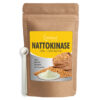
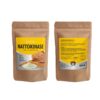
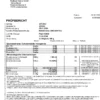
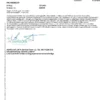
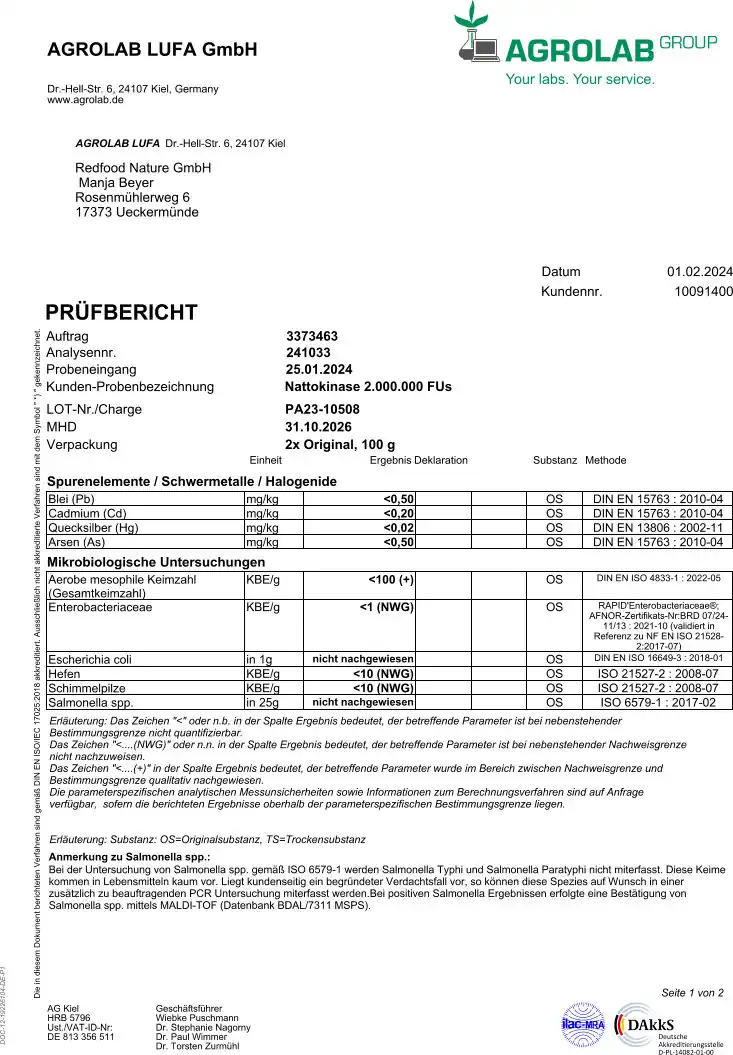
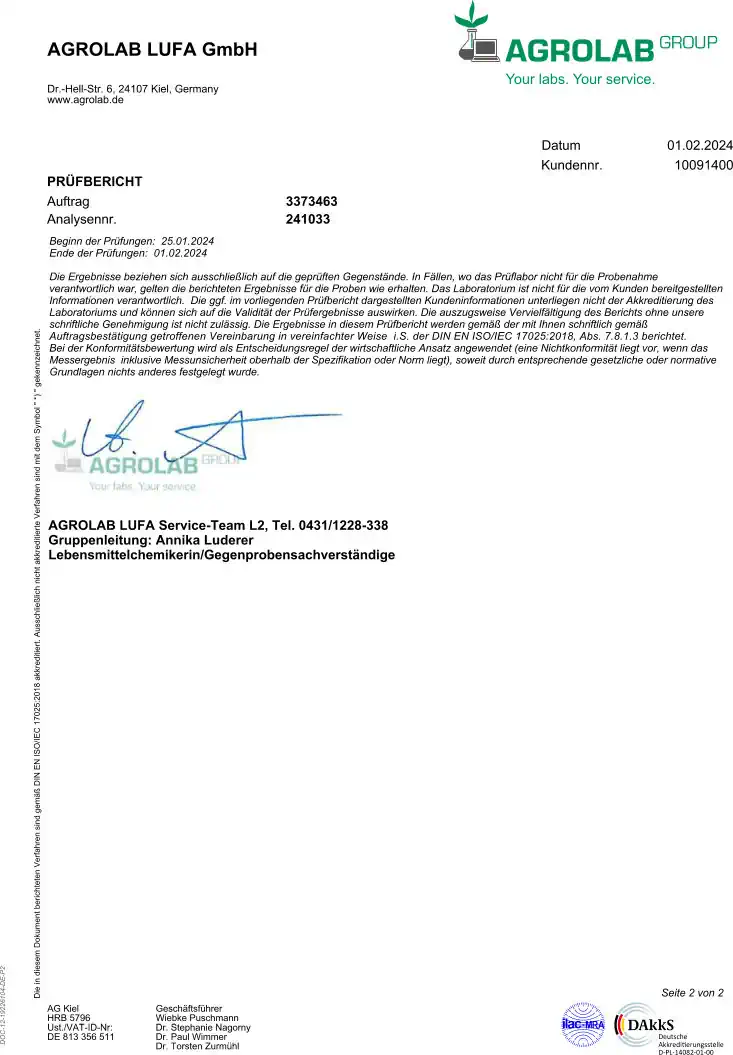
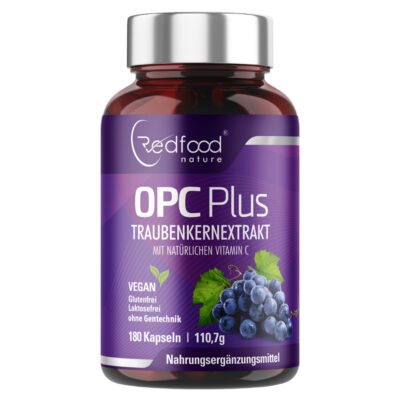
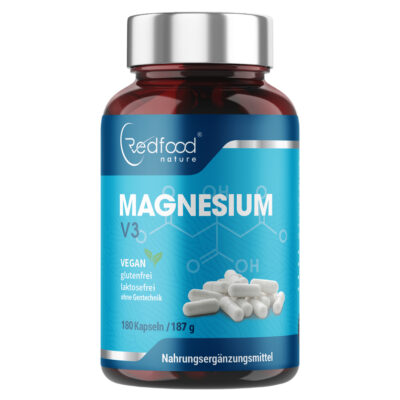
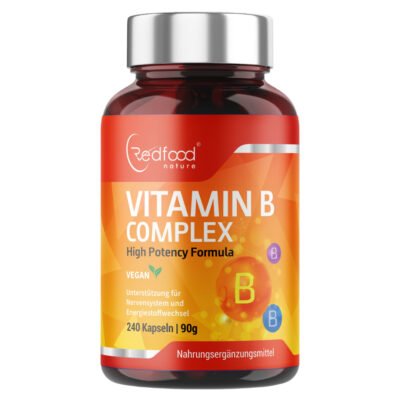
Rezensionen
Es gibt noch keine Rezensionen.